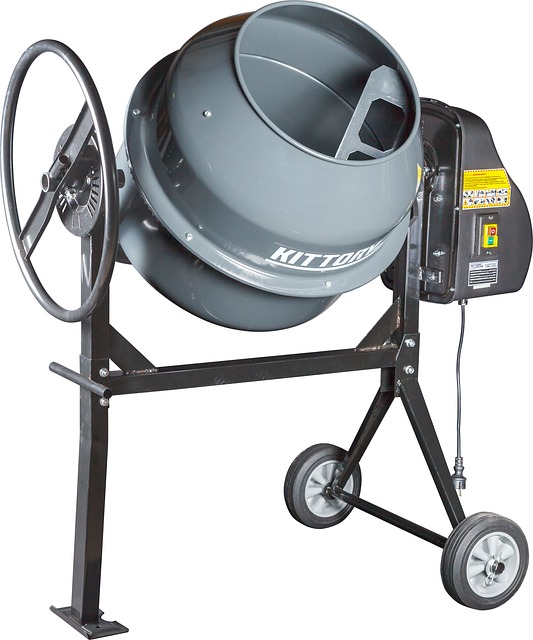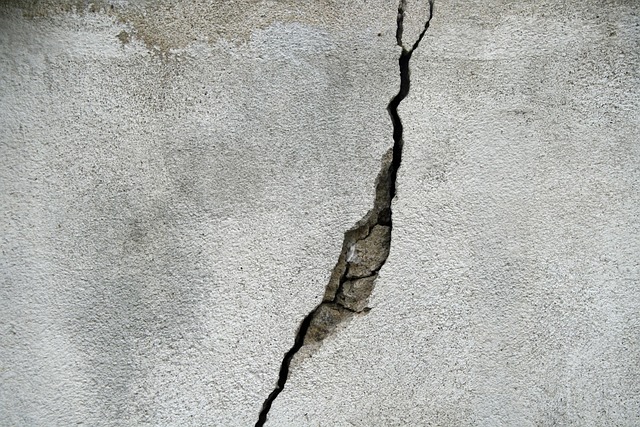Concrete foundation repairs are crucial for homeowners due to concrete's susceptibility to soil movement, weather, and aging. Common issues include structural or surface cracks, uneven floors, and water stains. Early detection through regular inspections is key to preventing costly damage. DIY methods like epoxy injection and polymer patching compounds offer convenient, cost-effective solutions for minor repairs. More extensive damage requires professional help, with advanced polymeric materials and specialized techniques minimizing costs. Regular maintenance, including sealing cracks and proper drainage, is essential to preserve concrete structures and prevent future repair needs.
Looking to fix your concrete foundation without breaking the bank? Foundation repairs don’t have to be costly. This comprehensive guide explores various affordable solutions for common concrete issues. From identifying signs of decay to preventative measures, we cover it all. Learn about non-invasive home repairs and when professional help is necessary. Discover cost-effective strategies for large-scale projects. Optimize your foundation’s health with our expert tips, ensuring a sturdy and durable structure.
Understanding Concrete Foundation Repairs: Common Issues and Causes

Concrete foundation repairs are a common need for many homeowners, as concrete is susceptible to damage from various factors such as shifting soil, extreme weather conditions, and aging. Understanding the common issues and their causes is crucial in addressing potential problems early on. One of the most frequent concerns is cracks in the foundation walls or floors. These cracks can vary in size, from hairline fractures to wide gaps, and they often result from settlement or shrinkage of the concrete due to changes in moisture levels or soil conditions.
Another prevalent issue is unevenness or dips in the floor surface, which can indicate structural damage or heave (a swelling of the concrete caused by moisture absorption). Settling or shifting of the concrete foundation may also lead to uneven doors or windows, wall cracks, or ceiling dings. Timely inspection and maintenance are key to preventing these issues from escalating. Regular checks for any signs of damage, coupled with proper drainage systems and control of moisture levels, can go a long way in ensuring the longevity and stability of your concrete foundation.
Assessing the Damage: Identifying Signs of Concrete Decay

Concrete structures, be it your home’s foundation or a commercial building’s basement, are susceptible to decay over time. The first step in affordable concrete repair is assessing the damage caused by various factors like water intrusion, extreme temperatures, and poor drainage. Look out for visible signs such as cracks – both structural and surface cracks – that might indicate weakening of the concrete. These cracks can range from hairline fractures to large, diagonal cracks that compromise the integrity of the structure.
Additionally, keep an eye out for bulging or shifting walls, uneven floors, and water stains on ceilings or walls. These symptoms often point towards serious structural issues that require immediate attention. Early detection is key in concrete repair as it allows for less invasive and cost-effective solutions before the damage escalates.
Non-Invasive Methods for Minor Reparations at Home

When it comes to minor concrete repair at home, non-invasive methods offer a convenient and cost-effective solution for homeowners. For small cracks or chips in your foundation, an epoxy injection might be all you need. This process involves drilling a small hole into the damaged area and injecting a mixture of epoxy resin and hardener. The material fills and strengthens the crack, preventing further damage and providing a long-lasting fix.
These DIY concrete repair techniques are easily accessible and can be done with basic tools. Other methods include applying a polymer-based patching compound or using a self-leveling cement to fill in small gaps and imperfections. Such approaches are not only affordable but also allow you to maintain the integrity of your foundation without extensive excavation or replacement, making them ideal for quick fixes.
Professional Concrete Repair Services: When to Call Experts

Concrete repair services are a crucial aspect of maintaining any structure built with concrete. While some minor cracks or repairs can often be tackled by homeowners, there comes a time when professional intervention is necessary. Recognizing when to call experts for concrete repair is essential to prevent further damage and ensure the longevity of your property.
One of the primary indicators that it’s time to seek professional help is the extent and severity of the damage. If you notice significant cracks, heaving (when concrete rises or moves), or structural instability, it’s best to contact concrete repair specialists. Additionally, if the repairs involve removing and replacing large sections of concrete, specialized equipment, and expertise are required to ensure a safe and effective fix.
Cost-Effective Solutions for Large-Scale Foundation Repairs

When dealing with large-scale foundation repairs, cost-effectiveness is a top priority for homeowners and property managers alike. Concrete repair, being a common and necessary fix, doesn’t have to break the bank. There are several strategies that can help keep expenses down without compromising on quality. One such method involves using advanced polymeric materials designed specifically for concrete repair. These innovative solutions offer superior strength and durability compared to traditional repairs, yet they are more budget-friendly in the long run.
Another cost-saving approach is to opt for specialized techniques like carbon fiber reinforcement, which can strengthen and stabilize the foundation without extensive excavation or replacement. This method not only reduces material costs but also minimizes labor expenses associated with more invasive repair methods. Additionally, hiring reputable contractors who specialize in concrete repair can provide valuable insights into the most efficient and economical solutions tailored to specific foundation issues.
Preventative Measures: Maintaining Your Concrete Foundation

Regular maintenance is key to preventing costly concrete repair down the line. Simple acts like sealing cracks, removing debris, and sweeping the foundation area can go a long way in protecting your home’s base. Water should be directed away from the foundation to prevent moisture intrusion, which could lead to damage and mold growth.
Inspecting your foundation for signs of stress or movement is another crucial preventative measure. Addressing these issues early, even if they seem minor, will save you money and headaches in the long run. Cracks, uneven surfaces, or shifting walls are indicators that professional concrete repair services may be needed to restore stability and longevity to your home’s foundation.
